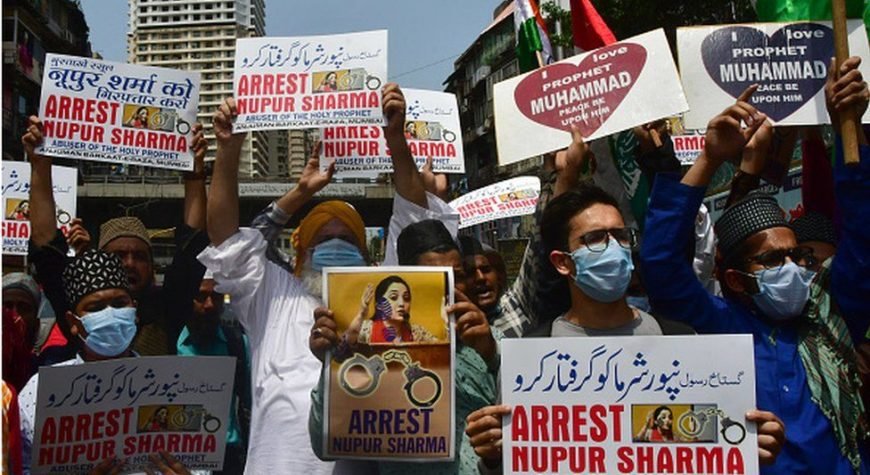Unveiling Islamophobia: A Critical Analysis of Western Media

- Islamophobia and its Origins
- The Role of Western Media in Perpetuating Islamophobia
- Impact on Muslim Communities
- Combatting Islamophobia: Towards a More Inclusive Society
- Conclusion
In recent years, the rise of Islamophobia has become a concerning global issue, influencing public perception, policy decisions, and the lives of millions of Muslims. While various factors contribute to the spread of Islamophobia, the role of Western media in perpetuating negative stereotypes and biases cannot be ignored. This article aims to critically analyze the impact of Western media in fueling Islamophobia, its origins, and the subsequent impact it has on Muslim communities. Furthermore, it will address the need for a more inclusive society to combat Islamophobia effectively.
Islamophobia and its Origins
Islamophobia can be defined as the irrational fear, prejudice, or hatred towards Islam and Muslims. It is important to understand that Islamophobia is not a new concept; rather, it has deep historical roots. The origins of Islamophobia can be traced back to the colonial era when Western powers demonized Islam and framed Muslims as a threat to their dominance. This narrative continues to persist today and is reinforced through various channels, including the media.
The Role of Western Media in Perpetuating Islamophobia
Western media, often subconsciously, perpetuates Islamophobia through biased reporting, negative stereotypes, and distorted narratives. Media rhetoric surrounding terrorism, for example, tends to focus on the religious identity of the perpetrators, thereby linking their actions to Islam as a whole. This generalization not only intensifies fear and hostility towards Muslims but also perpetuates the false notion that Islam is inherently violent.
Furthermore, Western media often portrays Muslims as a monolithic and homogenous group, ignoring the vast diversity within the Muslim community. This oversimplification contributes to the stereotyping of Muslims and the reinforcement of negative biases. By selectively highlighting instances of violence or extremism within Muslim communities while neglecting positive stories and contributions, the media perpetuates an unbalanced and distorted perception of Islam and its followers.
Impact on Muslim Communities
The impact of Islamophobia on Muslim communities is profound and far-reaching. Muslims are often subjected to discrimination, hate crimes, and social exclusion due to the negative portrayal of their religion and identity in the media. This marginalization can lead to feelings of alienation, anxiety, and a sense of insecurity within Muslim communities.
Moreover, Islamophobia hampers the integration and social cohesion of Muslim minorities in Western societies. The constant portrayal of Muslims as a threat fosters an environment of mistrust and isolation, hindering the building of harmonious relationships and mutual understanding.
Combatting Islamophobia: Towards a More Inclusive Society
Addressing Islamophobia requires a collective effort from individuals, communities, and institutions. Western media has a crucial role in shaping public opinion and perceptions, and thus holds the responsibility to dismantle negative stereotypes and biases against Islam and Muslims.
First and foremost, media organizations must strive to promote balanced and accurate reporting, ensuring that stories involving Muslims are contextualized and presented in a fair manner. This involves avoiding sensationalism and refraining from generalizations that demonize an entire religious group. Emphasizing diversity within Muslim communities and highlighting positive contributions can counterbalance negative narratives.
Additionally, media literacy programs can play a significant role in combatting Islamophobia. By educating the public on media bias, stereotypes, and the importance of critical thinking, individuals can develop a more nuanced understanding of Islam and challenge the negative narratives perpetuated by the media.
Finally, fostering dialogue and promoting interfaith and intercultural exchanges are essential steps towards a more inclusive society. Engaging in meaningful conversations, promoting mutual understanding, and building bridges of empathy between different communities can break down barriers and challenge the existing prejudices.
To address the rising tide of Islamophobia, it is imperative to critically analyze the role of Western media in perpetuating negative stereotypes and biases against Islam and Muslims. By recognizing the origins of Islamophobia and understanding its impact on Muslim communities, we can work towards a more inclusive society that upholds values of tolerance, respect, and solidarity. It is through collective efforts, including responsible media practices, education, and interfaith dialogue, that we can combat Islamophobia and create a world that celebrates diversity and promotes social harmony.

